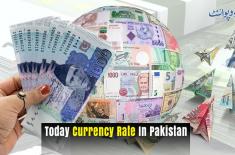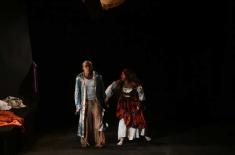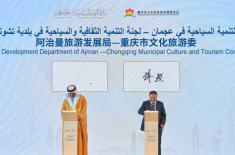
Dhobi Ghaat – An Archetype Of Glittering Political Legacy
Umer Jamshaid Published May 25, 2025 | 01:30 PM

FAISALABAD, (UrduPoint / Pakistan Point News - 25th May, 2025) A beacon of political activism, democracy and social justice - Dhobi Ghaat Ground in Faisalabad – boasts for hosting some of the country’s most prominent movements and leaders over the decades.
By giving political boost to numerous political leaders, its legacy continues to shine no matter whatever challenges came its way in maintaining its relevance amid rapid urbanization and changing demographic conditions of the city.
The historical and political importance of this open ground - nestled in neighborhoods and markets - cannot be overlooked as it has served as a pedestal where the policies were challenged, movements born and pulse of people could be known in a glance at the gatherings.
For decades, Dhobi Ghaat also called Iqbal Park has remained an iconic landmark for its historical and cultural significance and its deep-rooted connection to the political landscape. It is a symbol of resilience, also representing working class, labor unions and worker rights organizations that have often used it as a battleground to voice concerns over wages, working conditions and social justice.
“Dhobi Ghaat ground has a history. It has been a hub of political activities in Faisalabad for decades,” remarked Muhammad Iqbal, a veteran journalist who has covered numerous events at this ground. “Its central location and spaciousness makes it an ideal venue for large gatherings.”
Iqbal has been reporting on politics in Faisalabad for over 25 years and believes that the ground's significance extends beyond its physical attributes. “It is a symbol of city's rich political heritage and a reminder of many struggles and sacrifices made by the people of Faisalabad in pursuit of democracy and supremacy of the parliament.”
Initially, Dhobi Ghaat was purely functional, but as Faisalabad (then Lyallpur) grew, it became a space where workers and activists congregated. Even in pre-partition era, Quaid-e-Azam Muhammad Ali Jinnah was also invited to address a mammoth gathering as part of Pakistan movement for having a separate homeland for Muslims of the subcontinent.
After partition, first premier of Pakistan Liaquat Ali Khan and Mohtarma Fatima Jinnah also addressed public gatherings at this ground. Later, known leaders like Zulfiqar Ali Bhutto, Nawaz Sharif, Benazir Bhutto and many others also addressed public gathering at this ground during movements and election campaigns.
“Dhobi Ghaat is not just a space for speeches rather a historical stage where leaders have set the course of political journey,” noted Wazir Ahmad Khan, a political analyst. “People who gathered here for movements, elections and protests made it the most politically active destination.”
From former prime ministers to opposition leaders, Dhobi Ghaat has hosted some of the most significant political figures in the history of Pakistan,” he said.
“This legacy continues today and this venue is still being used for political and social activism.”
Qamar Ali, a social activist said that one of the defining aspects of Dhobi Ghaat ground is its role in promoting democracy. “It has served as a melting pot where people from all walks of life have gathered to listen their leaders, express their concerns and demand change. It is here that slogans of democracy, justice and social reforms have echoed through massive crowds.”
He said that public spaces like Dhobi Ghaat ground are the true barometers of democratic engagement. “The energy, the passion and the sheer diversity of people who come together here represent the power of political mobilization in Pakistan.”
The significance of this space extends beyond political rallies as rallies starting here later turned into mass movement sometimes laying foundations for changes in overall political landscape.
Malik Mushtaq Ahmad, a labor rights activist, said that Faisalabad, known as textile hub of Pakistan, has a long history of labor movements, many of which found their voice at Dhobi Ghaat ground. “Workers from the textile industry, demanding fair wages and better working conditions, have organized countless gatherings at this venue.”
“Since many a time these congregations ended up with better facilities for workers,” Mushtaq said. “The working class in Faisalabad sees Dhobi Ghaat ground as their forum for justice from where they had started movements against oppressive policies of employers.”
Simply seeing in countrywide political perspective and movements, Dhobi Ghat is none the less than historically known destinations like Minar-e-Pakistan, Lahore and Mazar-e-Quaid Karachi. The political parties have recognized its importance in influencing working-class vote and those knowing political dynamics of Faisalabad cannot ignore holding rallies or gatherings at Dhobi GHaat.
“Dhobi Ghaat Ground has been utilized strategically by the political parties to strengthen their foothold in Faisalabad,” said Political strategist Arif Khan. “During election seasons, it becomes the battleground for competing political forces, each attempting to sway the public with grand promises and fiery speeches.”
He said that the political relevance of Dhobi Ghaat Ground is immense. “A successful rally here is often seen as an indicator of popularity in the region. It is a place where parties gauge their support base and mobilize voters ahead of elections.”
As the time takes it course, many important places gradually lose their importance but the destinations like Dhobi Ghaat live longer and stand tall for their association to political activity in the country.
APP/iah/maz (APP Feature Service)
Recent Stories

Eid al-Adha expected on 6th June in most Islamic countries: International Astron ..

Australian authorities airdrop supplies to farmers stranded by floods

Currency Rate In Pakistan - Dollar, Euro, Pound, Riyal Rates On 25 May 2025

Today Gold Rate in Pakistan 25 May 2025

UAE fall to Czech Republic at Minifootball World Cup in Baku

Jordan, Grenada sign joint communiqué to establish diplomatic relations

UAE delegation participates in 34th session of UN Commission on Crime Prevention ..

Military Sports Museum inaugurated in Abu Dhabi, showcasing history, achievement ..

Sharjah launches 8th edition of Dibba Al Hisn Duo Theatre Festival

FNC highlights legislative role of parliaments in ensuring fair, ethical use of ..

Ajman Tourism, Chongqing Municipality's Tourism Committee sign MoU

UoS’ Alumni Association launches first Chapter outside Arab World
More Stories From Miscellaneous
-
Dhobi Ghaat – An archetype of glittering political legacy
6 minutes ago -
A war won on screens, lost in battlefield
16 minutes ago -
Landi Kotal: Peeping through annals of history
26 minutes ago -
Peshawari Chappal: A saga of decade-old-long craftsmanship
2 days ago -
ACP Honors Veteran Journalist Pervez Mazhar's 55-Year Career
3 days ago -
ACP honors veteran Journalist Pervez Mazhar's 55-Year Career
3 days ago
-
NAPA graduate gets Canadian award for ethnomusicology research
7 days ago -
Theater play‘Adult Education’ presented at Sindh Youth Club
7 days ago -
Laborers rights - still a distant dream in KP
7 days ago -
3-Day "Youth Empowerment Summit Sindh Program" to start from May 23 in Hyderabad
8 days ago -
Book “Boltey Katbey” by Abdul Rehman Kashif launched
10 days ago -
KP declares 2025 as ‘Year of Tirich Mir’
13 days ago